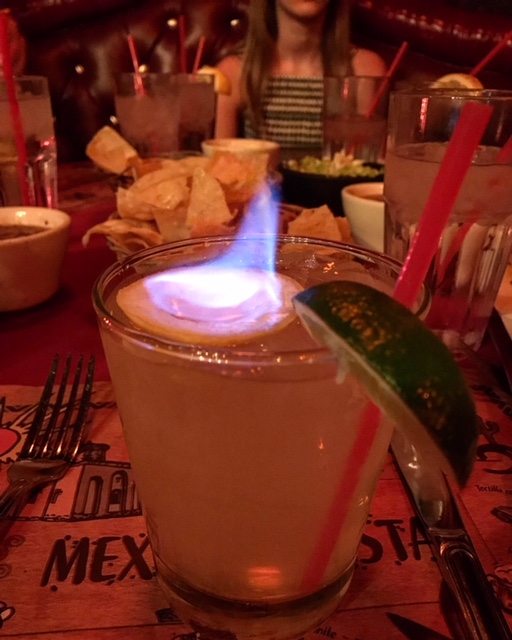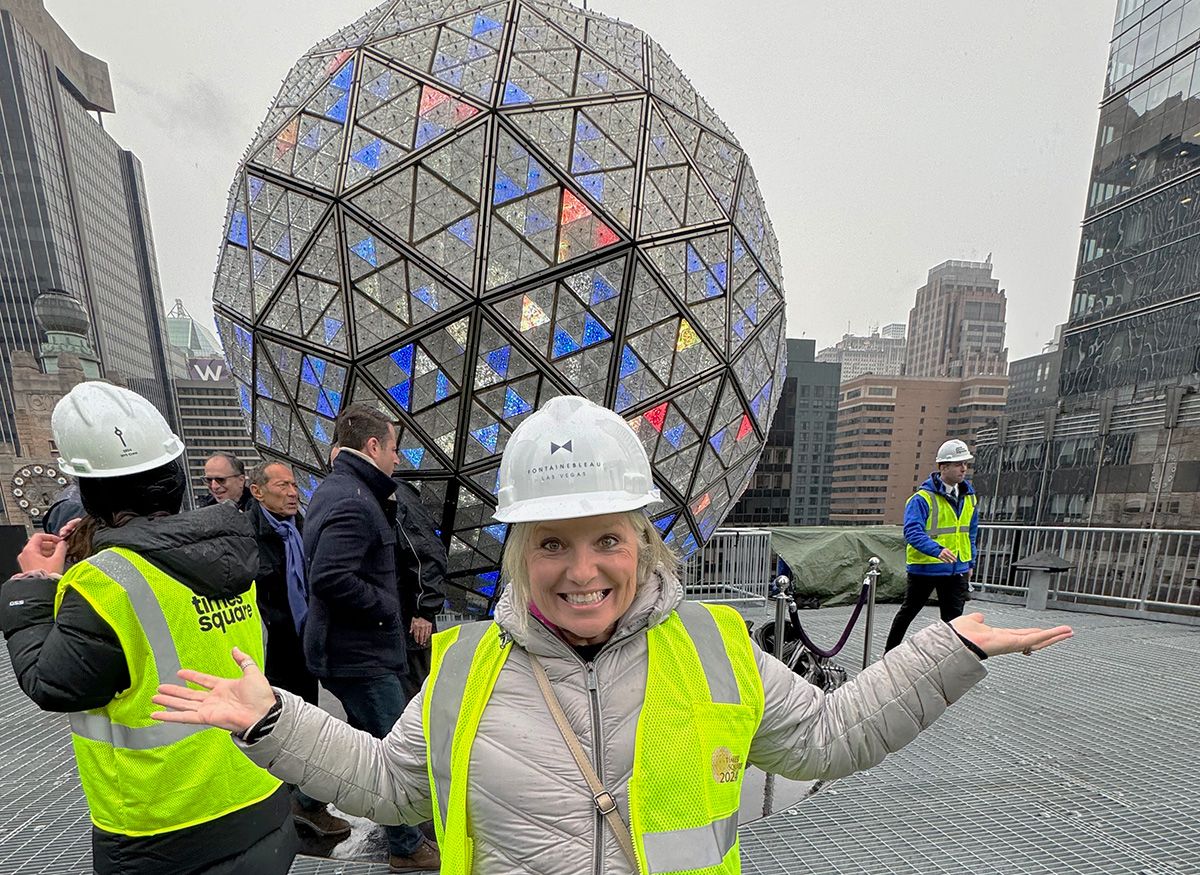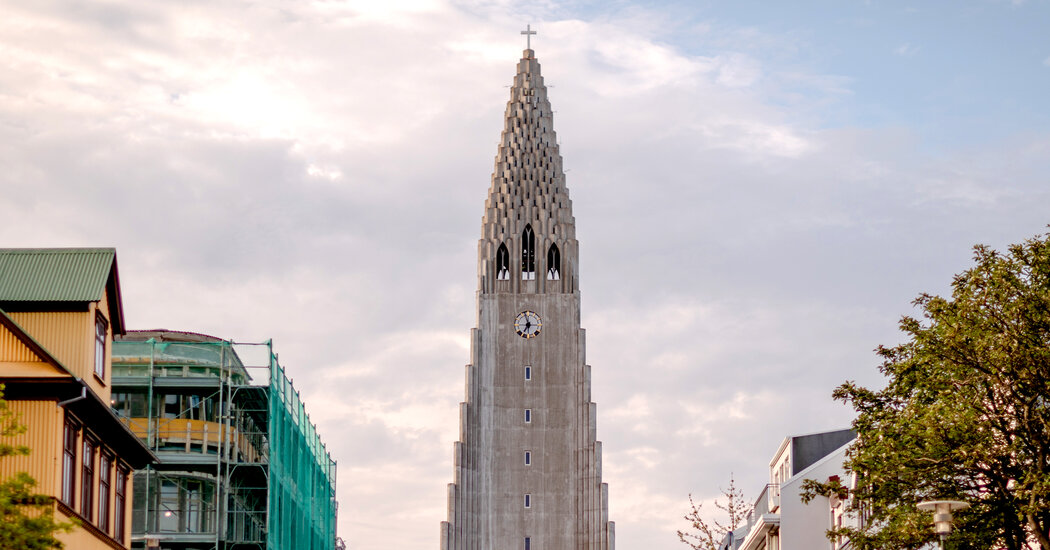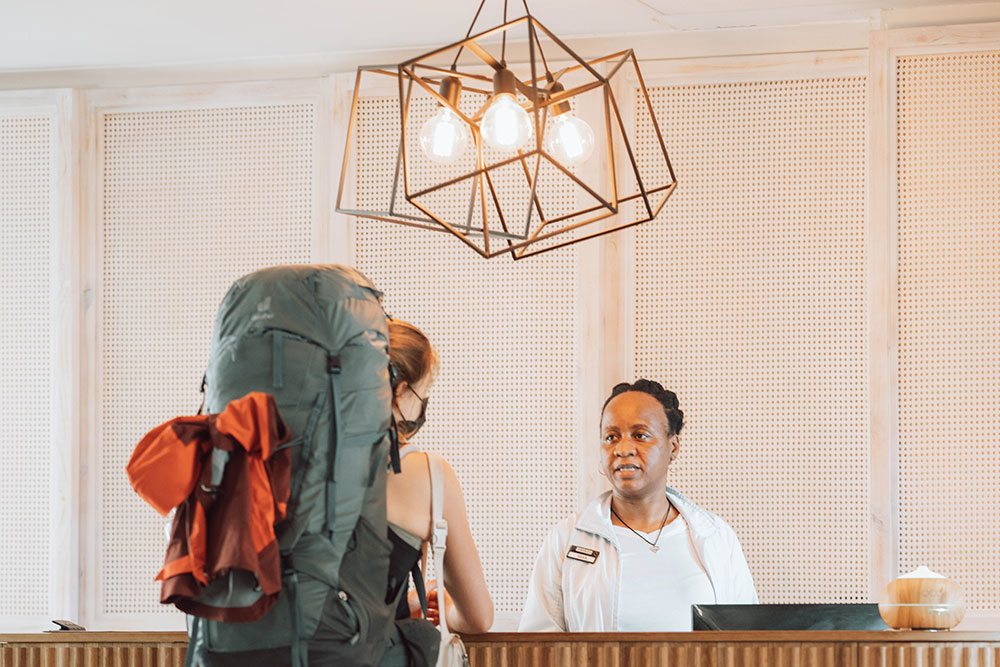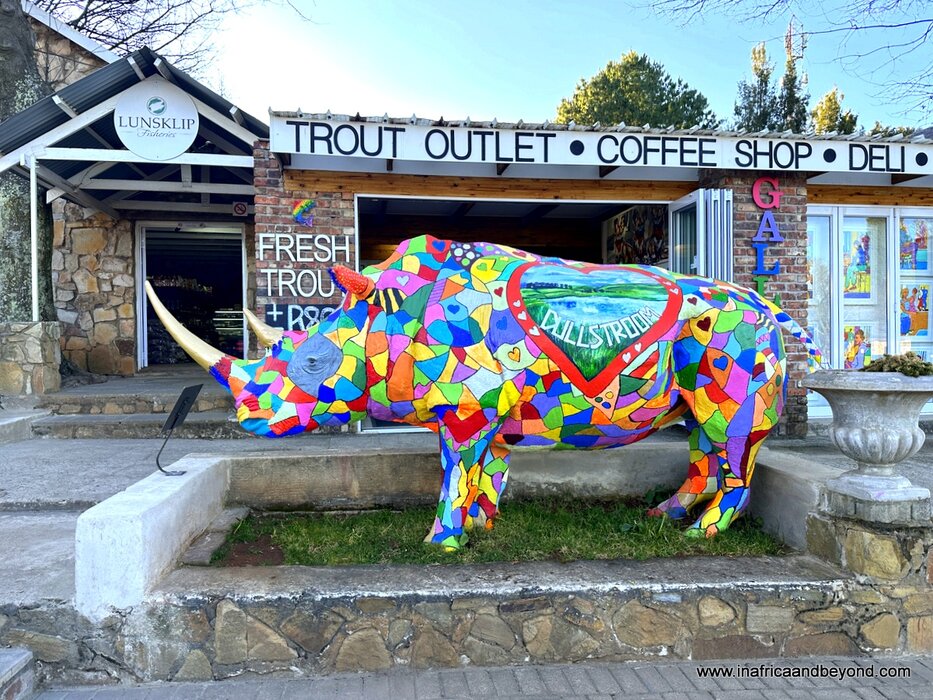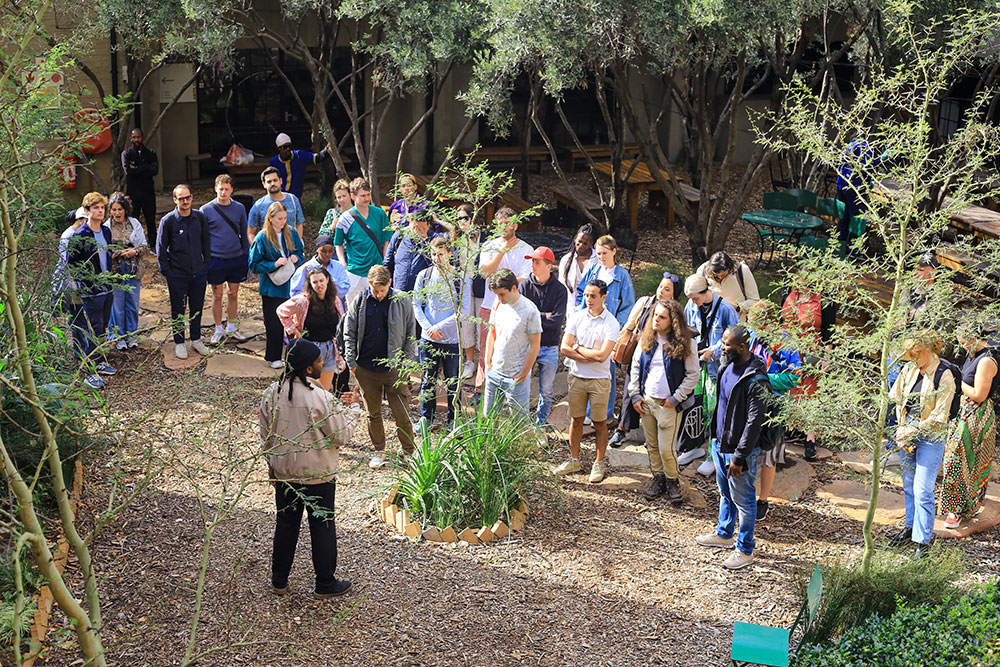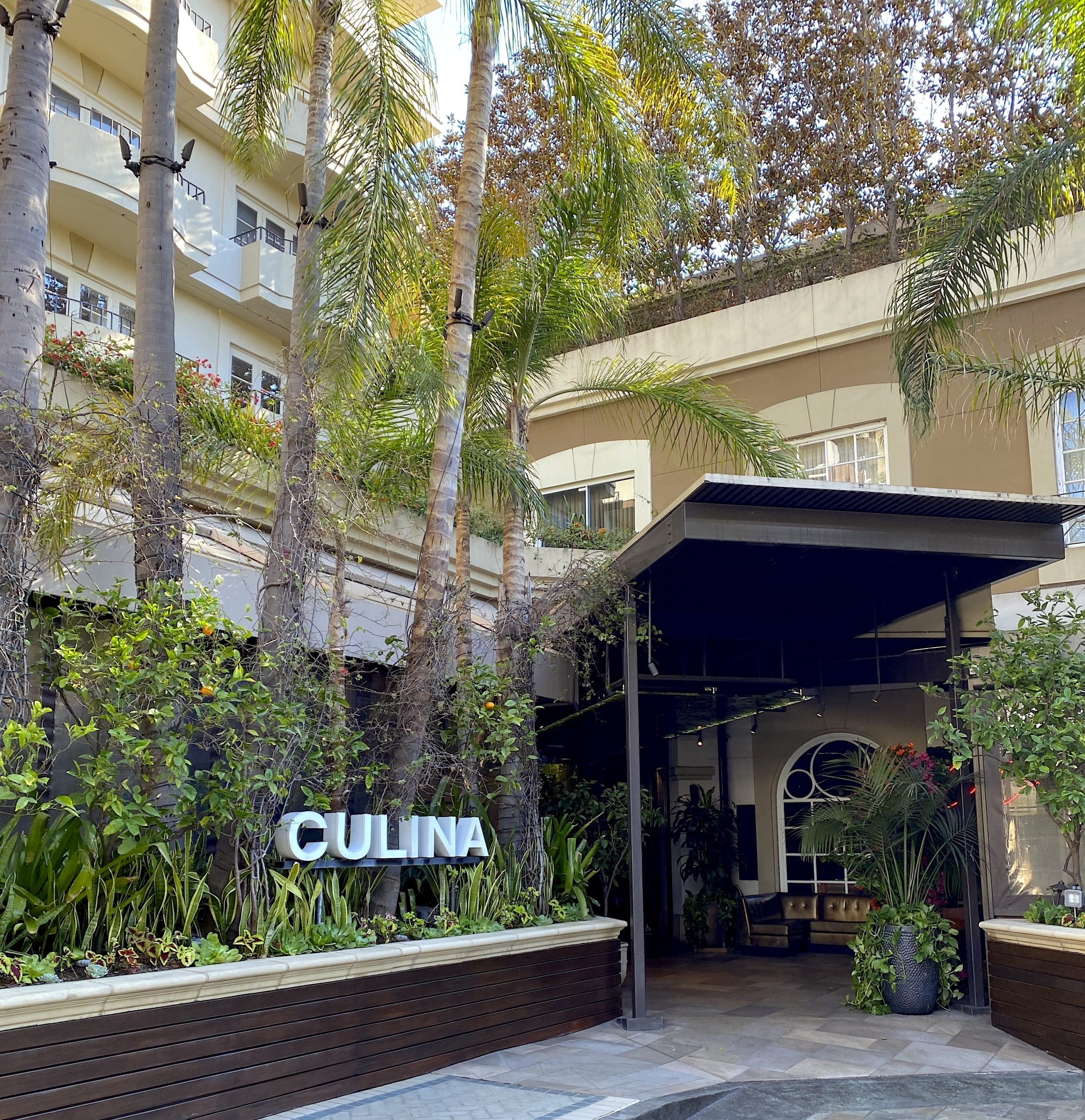
New York State has been the home of monumental moments in Black history. From Harlem’s jazz scene to Frederick Douglass’ legacy in Rochester to Harriet Tubman’s home in Auburn, explore the people, places, and stories that shaped America on a weekend getaway to New York State destinations rich in Black culture, history, and heritage.
Jump to: Harlem | Kingston | Albany & Saratoga Springs | Auburn & Seneca Falls | Rochester | Buffalo & Niagara Falls | Lake Placid & Ausable Chasm | Oswego
Harlem (New York City)
Harlem is more than a neighborhood—it’s a movement, a rhythm, a revolution. The Harlem Renaissance of the 1920s turned this Upper Manhattan locale into the epicenter of Black culture, artistry, and social change that pulses through Harlem to this day. Feel it at the legendary Apollo Theater as you step behind the curtain for a historic tour or experience the magic firsthand at an iconic Amateur Night. Immerse yourself in the vast archives of the Schomburg Center for Research in Black Culture, see the first African-American Baptist Church in New York State, revel in an evening of jazz at Minton’s Playhouse—the birthplace of Bebop, and celebrate the grand opening in the fall of 2025 of the Studio Museum, a nexus for artists of African descent.
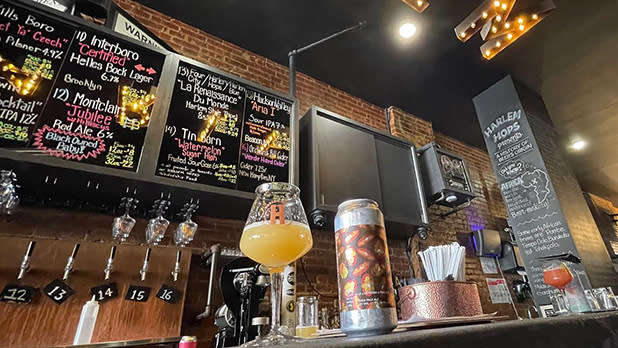
Credit: @shawnclarknyc on Instagram
Let Harlem Heritage Tours take you deeper, tracing the footsteps of jazz pioneers, hip-hop trailblazers, gospel greats, and Civil Rights icons. With guides who call Harlem home, every story is told with authenticity and passion. Fill up on Harlem hospitality and soul food at Sylvia’s, Melba’s, or Red Rooster, or get a taste of Ethiopia at Massawa, NYC’s oldest African restaurant. Top it all off with a craft beer at Harlem Hops, Manhattan’s first 100% Black-owned beer bar, or sweet treat from Sugar Hill Creamery.
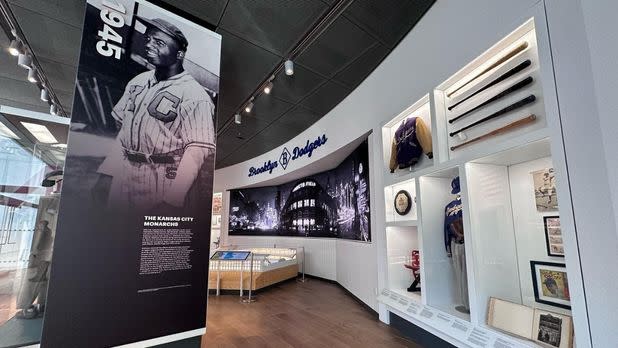
Credit: @ericmonacelli on instagram
Beyond Harlem, discover Brooklyn’s Weeksville Heritage Center—a preserved 19th-century free Black community, Louis Armstrong’s perfectly preserved house in Queens, and Jackie Robinson’s legacy on and off the field in Lower Manhattan. Nature lovers can unwind at Brooklyn’s Shirley Chisholm State Park, named after the first Black congresswoman, or Marsha P. Johnson State Park, honoring the trans rights pioneer. Stay in style at the Renaissance New York Harlem Hotel or Brooklyn’s charming Black-owned Akwaaba Mansion.
Kingston (Hudson Valley)
Kingston, New York State’s first capital, is rich with Black history, offering a deep connection to the past through sites, stories, and community-driven initiatives. Begin at the library of the A.J Williams-Myers African Roots Center, a space dedicated to promoting literacy through teaching and learning of African roots, named after the influential scholar of Black Studies. The 500-acre Sojourner Truth State Park, situated on the banks of the Hudson River, honors the life of the famed abolitionist, suffragist, and orator and offers majestic views along the Hudson River Brickyard Trail. A bronze statue of the fearless freedom fighter also stands in Highland at the entrance to the Walkway Over the Hudson, the longest elevated pedestrian bridge in the world.
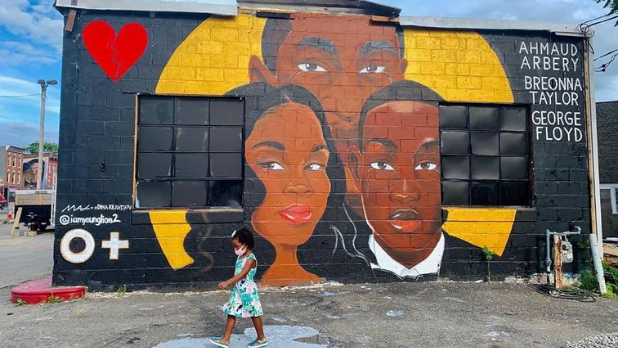
Credit: @iamyounglion2 on Instagram
When it’s time to eat, try Urban Fork for inventive bites, Black-Eyed Suzie’s for farm-to-table fare, or Top Taste, a James Beard-nominated favorite for Jamaican bites. Explore Kingston’s vibrant public art scene, including a Black Lives Matter mural led by local arts organization O+, along with other works that highlight artists amplifying BIPOC identity, stories, history and expression. Step into history at the A.M.E. Zion Church, the county’s oldest African American congregation, which maintains the Mt. Zion African American Burial Ground, a resting place for Black Civil War soldiers and one of the largest known slave cemeteries in the Northeast.
If visiting in February, Kingston hosts one of the Hudson Valley’s largest Black History Month celebrations, featuring a public art tour, a photo exhibit, and the annual Sojourner Truth Life Walk. Stay right in town at Hotel Kinsley or settle in to a boutique mountain lodge at Urban Cowboy about an hour away for forest views, relaxing soaking tubs, and award-winning restaurant.
Albany & Saratoga Springs (Capital-Saratoga)
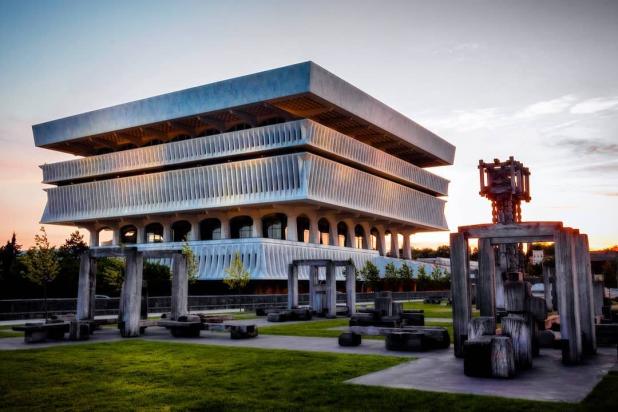
Credit: @oeprophoto on Instagram
Begin your exploration of Black history and culture in Albany at the New York State Museum. Come face to face with the Cohoes mastodon, take a spin on a century-old carousel, and be transported to an era of jazz, poetry, and cultural awakening at the permanent exhibit Black Capital: Harlem in the 20s. Here, the fight for civil and economic equality meets the brilliance of Black artistry, illuminating a legacy that still shapes America.
Let soul food nourish both body and spirit at Allie B’s Cozy Kitchen and Suga Foot’s Soul Kitchen, or taste the global flavors of the African diaspora at Umana Yana. Afterward, visit the mid-19th-century Greek Revival townhouse once home to noted abolitionists Stephen and Harriet Myers that served as a refuge for freedom seekers and hosted meetings of Albany’s Vigilance Committee. Deepen your journey with a guided walking tour of Albany’s Underground Railroad sites (for groups of 10 or more). As night falls, witness the power of storytelling with a performance at the Capital Repertory Theatre by the Black Theatre Troupe of Upstate NY, dedicated to presenting works by and about artists of color.
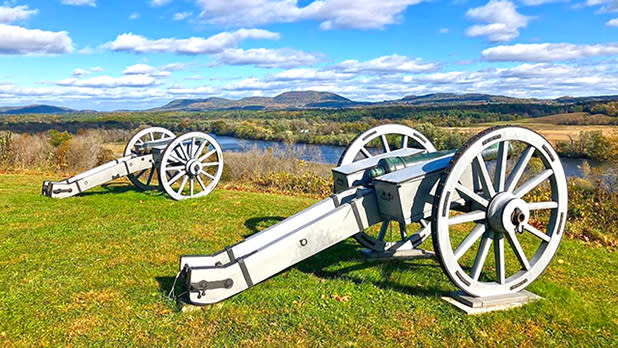
Credit: @deana.1014 on Instagram
With the commemoration of America’s 250th anniversary approaching in 2026, journey to Saratoga National Historical Park, where nearly 400 Black soldiers took to the battlefield in the 1777 Battle of Saratoga, a turning-point victory in the Revolutionary War. Explore the battlefield, visit the Saratoga Monument, or walk through Victory Woods to honor their contributions.
Auburn and Seneca Falls (Finger Lakes)
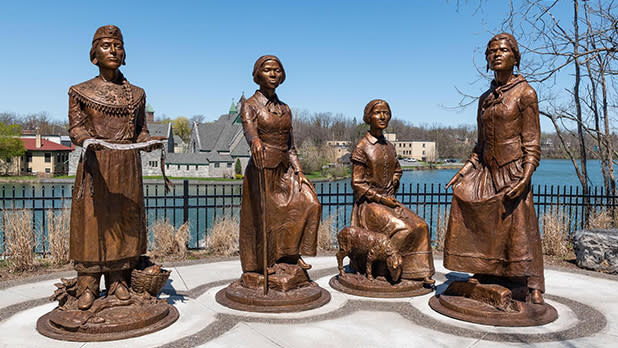
Credit: @life.adventure.exposure on Instagram
Amidst the lush wineries and picturesque views of the Finger Lakes, you’ll find Auburn and Seneca Falls—two historic towns deeply connected to the fight for freedom and equality. Start your journey at the Harriet Tubman National Historical Park, located at the northern tip of Owasco Lake. Known as the Moses of her people, Harriet Tubman helped countless freedom seekers along the Underground Railroad—making several daring rescue trips back to the south. Tour her former home and visit her final resting place at the nearby Fort Hill Cemetery, where her headstone bears the words, “Servant of God, Well Done.”
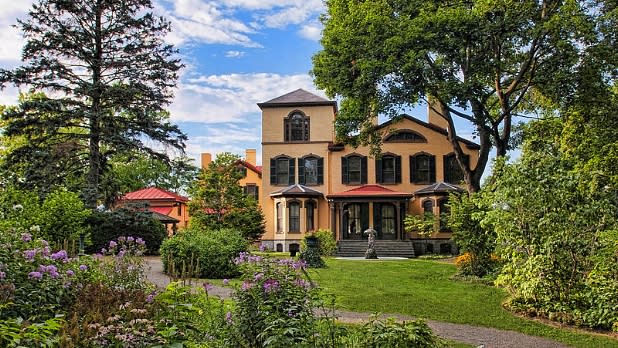
Dive deeper into history at the Seward House Museum, where Harriet Tubman was a frequent guest of President Abraham Lincoln’s Secretary of State, and learn about its history as a stop on the Underground Railroad. A visit to the Howland Stone Store Museum, housed in a charming 1837 cobblestone building, will uncover previous artifacts including an original Underground Railroad pass from 1840 and an impressive collection of suffrage posters.
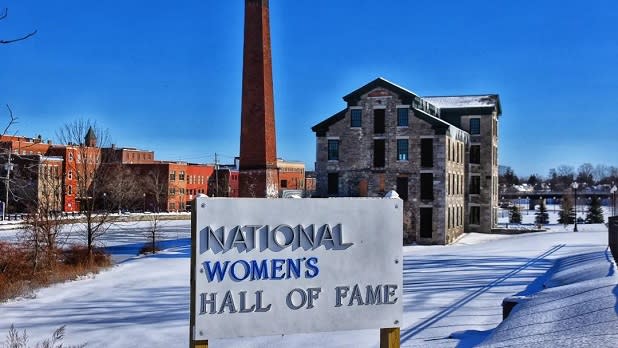
Credit: @wheelerphotography on Instagram
Refuel with farm-to-table comforts at Roseadah’s or Jamaican bites at Lavish Lounge before taking a 20 minutes trek to Seneca Falls, where the first women’s rights convention in the United States was held in 1848. Explore the National Women’s Rights Historic Park and then visit the National Women’s Hall of Fame, which honors trailblazers like Maya Angelou, Aretha Franklin, Shirley Chisholm, and Michelle Obama.
Rochester (Finger Lakes)
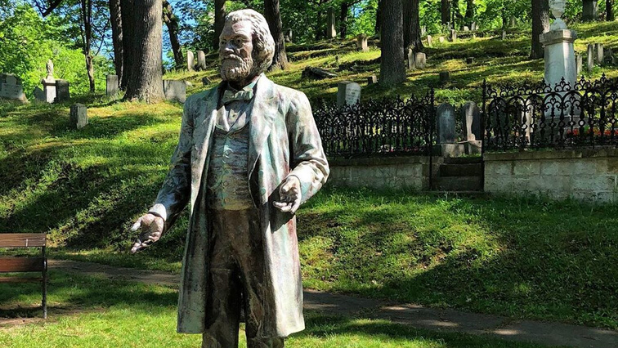
Credit: @pamfurlong1951 on Instagram
As the home of the great abolitionist Frederick Douglass, Rochester has a deep-rooted legacy in social justice and civil rights. Head out with Akwaaba Tours or take a self-guided Frederick Douglass Walking Tour, following 13 statues marked with a QR code that unlocks powerful stories of his life and legacy at notable sites throughout the city. Visit his gravesite at Mount Hope Cemetery and in Highland Park, the site of the annual Rochester Lilac Festival, you’ll find the Frederick Douglass Monument—the first public statue in the U.S. dedicated to an African American.
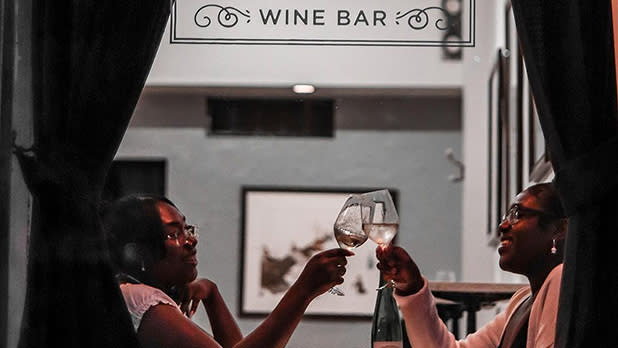
Credit: @ecs.scenes via @apogeewinebar on Instagram
Unwind with a drink at Black-owned spots like Red White and Brew or Apogee Wine Bar and savor Cajun flavors at French Quarter Café before exploring Rochester’s ties to the Underground Railroad. Stand at Kelsey’s Landing, the final stop for many freedom seekers before crossing into Canada, and learn the stories of those who risked everything for liberty at the Rochester Museum and Science Center’s permanent exhibit Flight to Freedom. For a comfortable stay, book a room at the Courtyard Rochester Downtown, offering easy access to these historic sites and other must-see destinations like the Strong National Museum of Play, currently hosting a short-term exhibit on Black doll designers, and The Little Theatre, which hosts a Black Cinema Series.
Buffalo and Niagara Falls (Greater Niagara)
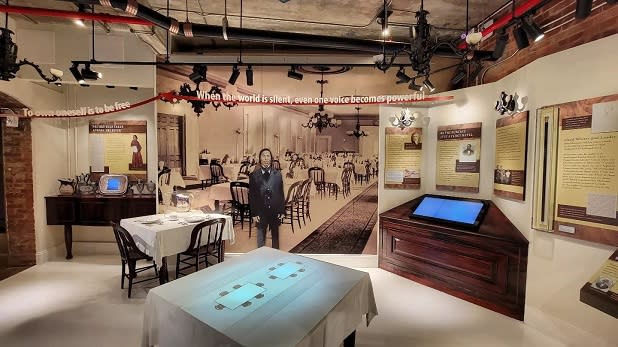
Credit: @jadephotographs on Instagram
Embark on an enriching journey through Buffalo and Niagara Falls, where stories of courage and creativity come alive in a celebration of African American history and culture. Start at the Niagara Falls Underground Railroad Heritage Center, where you’ll uncover the powerful stories of freedom seekers and abolitionists from Harriet Tubman to local heroes like John Morrison. Connecting past to present, the permanent exhibition “One More River to Cross” inspires visitors to recognize modern injustices that stem from slavery and to take action toward an equitable society.
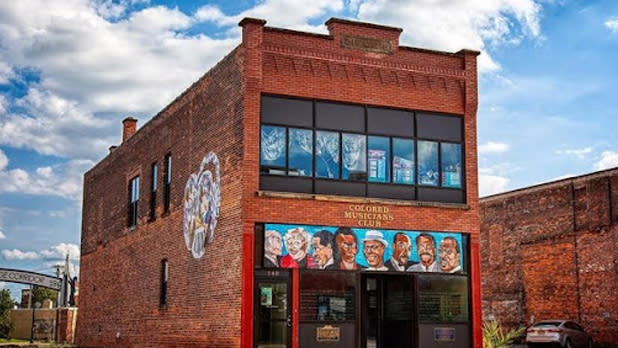
Credit: @explorebflo on Instagram
In Buffalo, feel the pulse of history at the Colored Musicians Club and Jazz Museum, the only remaining African American club of its kind in the United States, which became a stopover for jazz legends from Billie Holiday to Dizzy Gillespie after its founding in 1917. Though the club is undergoing renovations, the museum is open, offering visitors a glimpse into its rich musical history.
Once you’ve worked up an appetite, when you’re not making stops along the Buffalo Wing Trail, savor soul food at A Taste of Soul and the family-owned Simply Soul, or stop by Sunshine Vegan Eats, a casual spot revolutionizing comfort food.
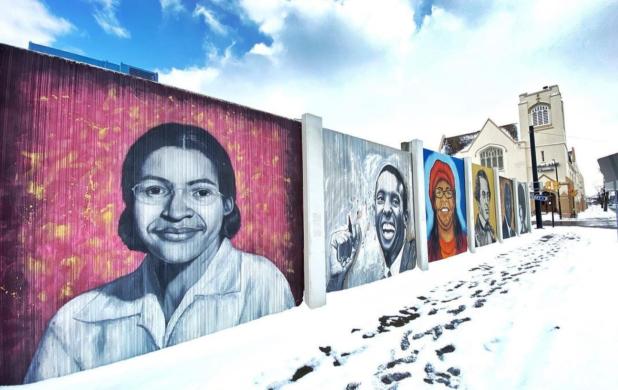
Credit: @stepoutbuffalo on Instagram
Take a step back in time at the Nash House Museum, the former home of Rev. J Edward Nash, pastor of the Michigan Avenue Baptist Church. Rev. Nash wrote many of his sermons and letters here that are on display for viewing. Buffalo also boasts a vibrant art scene that could easily fill a weekend with institutions like the Buffalo AKG Art Museum and Burchfield Penney Art Center, galleries, and powerful public art that includes the Freedom Wall, featuring striking portraits of prominent African American figures like Martin Luther King Jr., Shirley Chisholm, and Rev. J. Edward Nash. Buffalo is also home to one of the largest Juneteenth celebrations, marking its 50th year in 2025.
Lake Placid and Ausable Chasm (Adirondacks)
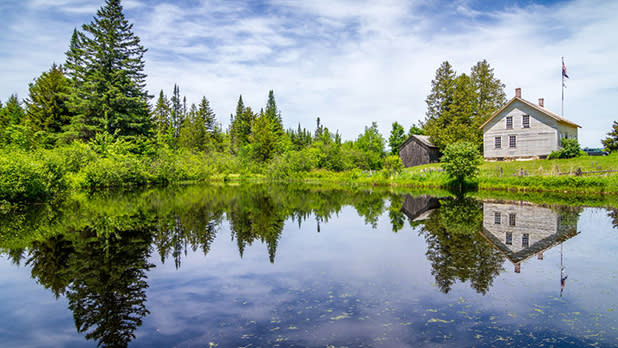
Journey into the heart of the forever wild Adirondacks, where history and nature intertwine. Begin at the John Brown Farm State Historic Site in Lake Placid, the preserved home and final resting place of the renowned abolitionist, known for his raid on Harper’s Ferry and the movement to liberate enslaved peoples in the South.
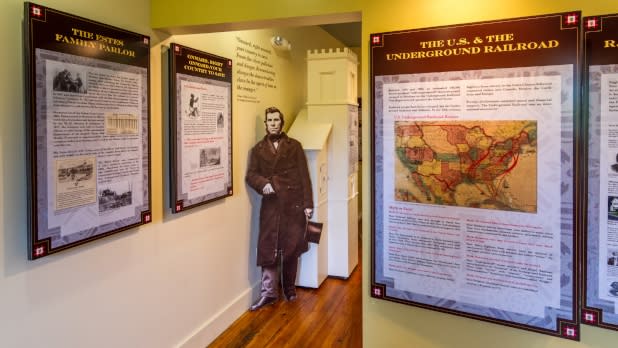
A short drive brings you to the North Star Underground Railroad Museum, which highlights the area’s role as a crucial passage to freedom through local artifacts and a multimedia production that tells the stories of those who passed through northeastern New York on their way to Canada. While in Ausable Chasm, take advantage of the natural wonders by embarking on a river tubing adventure through the “Grand Canyon of the Adirondacks” and one of the oldest attractions in North America.
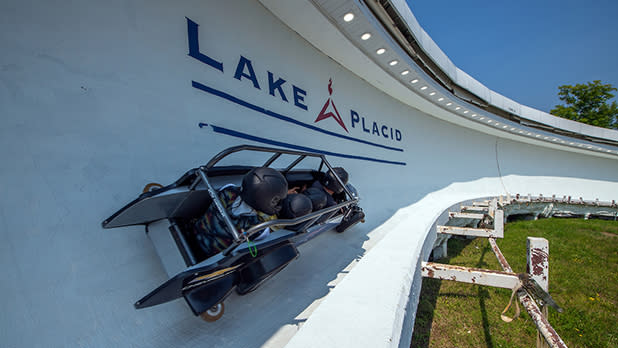
Back in Lake Placid, immerse yourself in the town’s sports legacy as a two-time Olympic host in 1932 and 1980, the latter of which saw Willie Davenport and Jeff Gadley make history as the first Black athletes to represent Team USA at the Winter Games. Take your own thrilling bobsled run at Mt. Van Hoevenberg, visit sites like the Olympic Ski Jumping Complex, and see the Olympic torch collection and other artifacts at the Olympic Center and Museum. Fill up on hearty barbecue dishes with a lakeside view at Smoke Signals and rest your head at Whiteface Lodge or Mirror Lake Inn.
Oswego (Thousand Islands-Seaway)
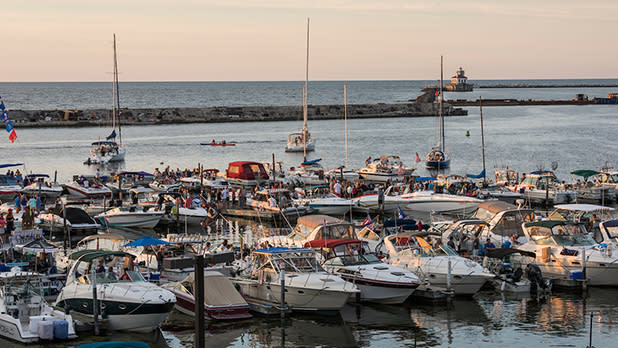
The Thousand Islands-Seaway region is a freshwater paradise filled with castles, cruises, magnificent state parks and some of the world’s best trophy fishing, but it’s also an area with deep ties to the Underground Railroad. Along the shores of Lake Ontario, you’ll find Oswego County, home to 11 Underground Railroad sites listed on the National Register of Historic Places in New York State—the highest of any other county in the state.
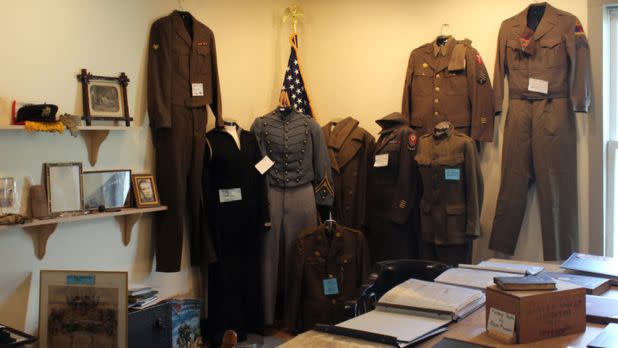
The Starr Clark Tin Shop in Mexico, NY was the hub of the abolitionist movement in Oswego County and a pivotal station on the Underground Railroad providing refuge to freedom seekers. The building has been renovated to its original appearance and is now a museum that features interpretive displays and exhibits on the Underground Railroad and abolitionist activity. The Oswego Public Library, the oldest in America, was funded by abolitionist Gerrit Smith and built with a promise that it would welcome all, regardless of race.
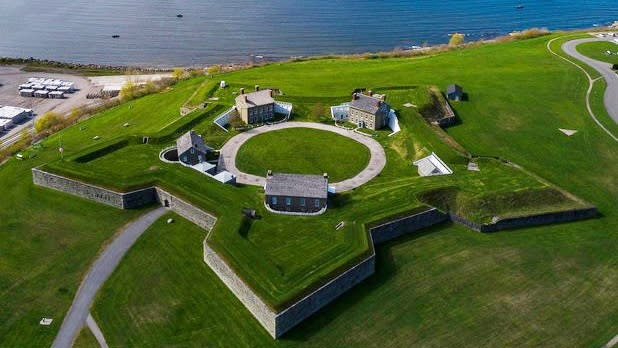
Credit: @eldonlindsay on Instagram
Round out your visit with stops at other local attractions like Fort Ontario, the H. Lee White Maritime Museum, and the Children’s Museum of Oswego, a fun and innovative space for kids of all ages to play and learn located in the historic Buckhout-Jones Building that once housed barbershops operated by two fugitive slaves. Up for a bit of fun and friendly competition? Get out on the go-kart track at Oswego Kartway.
For even more travel inspiration, check out these blogs on Black-Owned Businesses in New York State, Places to Visit Run by Amazing Black Leaders, Places to Experience Black History, and where to Experience Black Culture in New York.
Publisher: Source link
Latest Posts
-
31 July 2025
-
26 July 2025
-
14 July 2025
-
01 July 2025
-
07 August 2025
-
29 July 2025
-
20 February 2025
-
04 February 2025
Newsletter
Sign up for free and be the first to get notified about new posts.
Get The Best Blog Stories into Your icountox!
Sign up for free and be the first to get notified about new posts.


